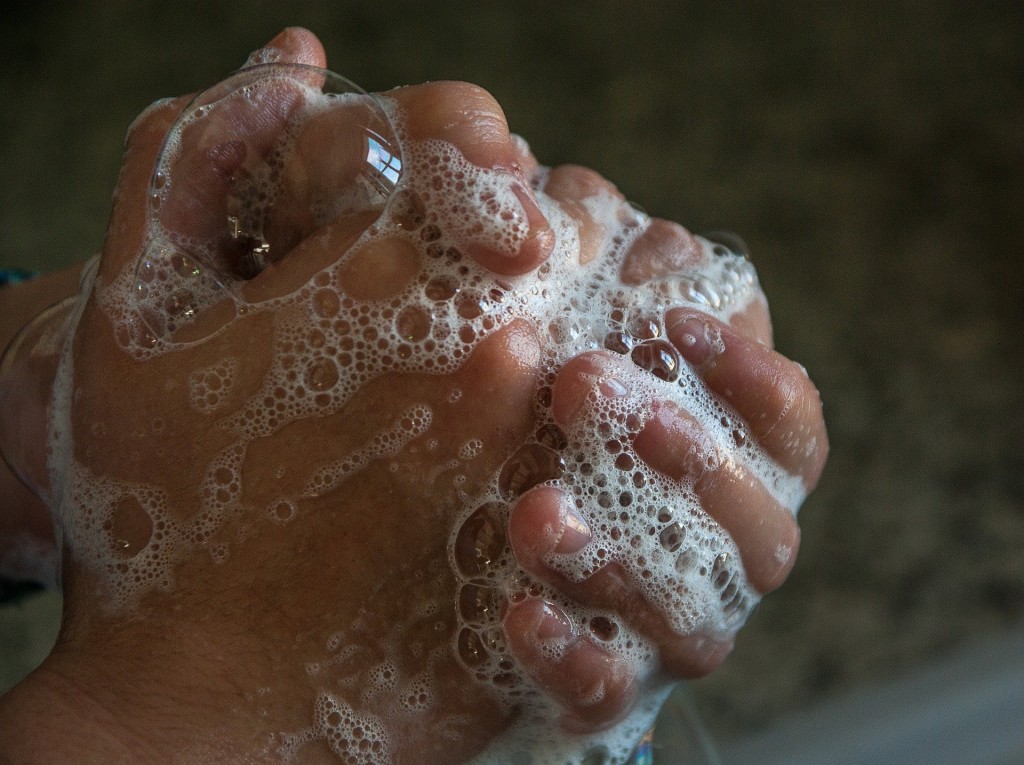Parashat Ki Tissa/Parah (5780 – 2020)
Exodus 30:11 – 34:35
Hand washing has become a life-saving imperative. What has been, until now, a matter of good manners and personal hygiene has now become a matter of urgent concern. And it has become ritualized by the medical authorities by mandating that we wash for a prescribed amount of time. We testily joke about this as we come up with new ways to measure the 20 seconds that we must endure.
We learn of different washing rituals in our Torah readings this week.
Our second Torah reading, about the Red Heifer (Parah Adumah – and hence the extra name for this Shabbat – Shabbat Parah) concerns itself with the ritual of cleansing purification that included a mixture of immersion in water as well as the sprinkling of fresh water with a mixture of ashes on the person who had become ritually impure. The ritual is paradoxical in its details. (See Sparks for Parashat Huqqat.) And the concept is somewhat alien to us, as all concepts of spiritual impurity have become. Yet, the idea of cleansing through water is certainly connected to our basic physical experiences.
Our Torah portion, Ki Tissa, also includes a ceremony of ritual cleansing, mandated for all priests who sought to enter the sacred space of the Tabernacle in order to serve God. This ritual called for the washing of hands and feet. (See Sparks for this portion, 2013.)
Our tradition preserved some trace of this ritual by creating our ritual of hand washing – when we rise every morning and then whenever we prepare to eat bread. But there is a difference between these spiritual practices and the handwashing we need to practice now. Now we must scrub ourselves with soap and keep moving our hands together, actively rubbing away any germs. But the handwashing ritual of the Torah and later tradition was not about scrubbing. It was about allowing water to fall upon our hands, being poured from a cup or through immersion. Our hands are passive recipients of water’s purifying powers.
This is one way we distinguish between our physical state and our spiritual state. Cleansing ourselves of germs or other kinds of dirt and impurities requires strenuous rubbing to get rid of the germs or destroy them. But spiritual cleansing is not about destroying anything. It requires a gentler act of release and the acceptance of purity as it washes over us. Yet this act of acceptance is not only about accepting purity. It is also an act of “n’tilat yadayim – taking of one’s hands.” This means that we take hold of our hands as instruments of meaningful action. We take responsibility for using our hands in a holy, helpful manner.
Even with this contrast, though, the connection between physical cleanliness and godliness is strongly felt. The present, very necessary, act of washing our hands to avoid sickness has inspired some of us to remind ourselves of this linkage and to endow our handwashing with spiritual significance, as well. In lieu of singing “Happy Birthday” two times, here is a handwashing prayer composed in response to our present crisis:
A Blessing for Washing Hands During a Pandemic – Trisha Arlin
As we wash our hands
We pray,
Blessed is the Soul of the Universe,
Breathing us in and breathing us out.
May our breaths continue
And our health and the health of all
Be preserved
In this time of sickness and fear of sickness.
Holy Wholeness,
We take as much responsibility for this as we can
By observing the obligation to wash our hands
Thoroughly:
For as long as it takes to say this prayer.
Amen.
https://www.ritualwell.org/ritual/blessing-washing-hands-during-pandemic
Shabbat Shalom
Rabbi David Greenstein
Have a reaction? Leave a comment about this Torah Sparks on the blog page.
Subscribe to Rabbi Greenstein’s weekly d’var Torah
image – collage of two images: “untitled” by jackmac34, license: pixabay
Thank you to John Lasiter for suggesting the title and selecting an image for this Torah Sparks – Rabbi Greenstein
- Toby Stein: In Memoriam - Thu, Feb 8, 2024
- Faithfulness and Hope: Parashat Sh’lach - Thu, Jun 23, 2022
- Past Their Prime: Parashat B’ha`a lot’kha - Thu, Jun 16, 2022

